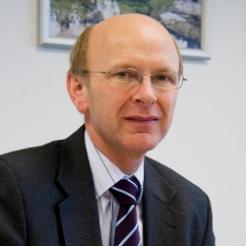Charities Aid Foundation chief executive John Low has defended international charities working in conflict zones, saying they expend enormous effort to ensure their donations do not find their way to terror groups.
In an article for the Huffington Post, Low appeared to take issue with recent high-profile comments by Charity Commission chair William Shawcross that corruption by terrorist groups is one of the biggest threats facing the voluntary sector nowadays.
Though he did not mention Shawcross by name, the article was published on 8 October, shortly after Shawcross had delivered two separate speeches explaining that the regulator intended to step up its anti-terrorism work.
And Low did mention that last month, the Charity Commission issued a regulatory alert to remind aid charities that they must be aware that their funds may be diverted for terrorist purposes and that they must report any suspicions to the police.
Charities Aid Foundation manages millions of pounds on behalf of charities and assists donors to give more than £400m a year to charities all over the world.
In the article, Low pointed out that CAF has “robust systems and invests enormous effort” to ensure that donations made through CAF go to legitimate charities.
“For example, every night we check all charities we support and their trustees against international anti-terrorism watch-lists, to ensure donations are not channelled to organisations associated with terrorism,” he wrote. “These checks are the same as those used by banks and other financial institutions working internationally.”
It also checks whether charities and trustees are subject to sanctions elsewhere in the world, even if not in the UK. “If we have a doubt, we double-check,” he wrote. “Ultimately, if there was to be a problem with a charity receiving money, we have an obligation to say no.”
Low said that charities depend on trust – “the trust that they will do all they can to help their beneficiaries without allowing aid to be used for unintended purposes or even fund conflict”. Charities that work in regions affected by terrorism are already vigilant, he said.
He concluded by saying that it is vital that trust and confidence in the sector remains high so that charities can keep on doing their vital work in those regions.
Last week, the National Union of Students wrote directly to Shawcross pointing out that it too already has plenty of checks and policies in place to prevent students’ unions from being used as a platform for extremist speakers, after he kept mentioning universities in his speeches.









